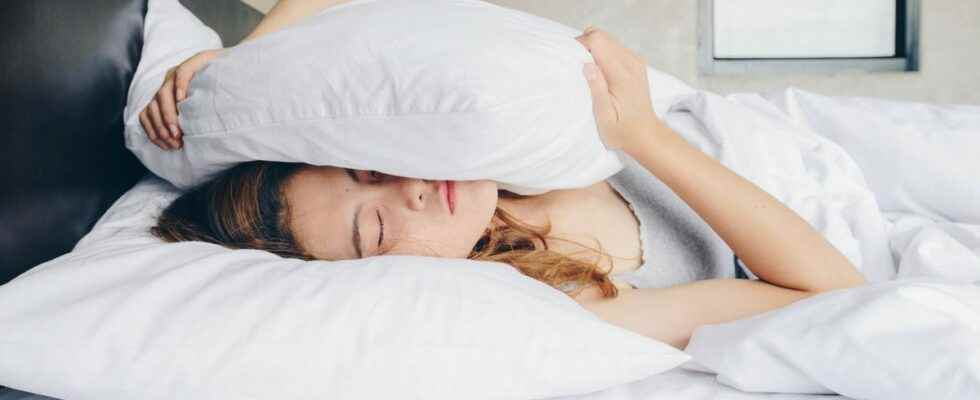Published on 05/20/2022 at 8:51 p.m.,
Reading 2 mins.
According to a study of 2,000 people, only 5% manage to sleep eight hours or more at night, the recommended sleep duration for the proper functioning of the body. For 60% of the participants, the night was disrupted for various reasons.
Sleep is essential to our well-being but also to the proper functioning of our body. We also speak of “restorative sleep” because many functions, including cellular restoration, take place at night.
Less than eight hours of sleep for the majority
Of the 2,000 participants in the study, 60% said they had spent a night disturbed by noise, room temperature, light or the snoring of their partner. For one of the authors, sleep specialist Dr. Kat Lederle,when we don’t get enough sleep or quality sleep, it can have a huge impact on the next day. Lack of sleep not only impacts work productivity, academic performance, and overall health, but also has a profound effect on our family life.”.
Consult a doctor online for your sleep disorders
To sleep better, there are different solutions. The simplest is probably the best known: it is to count sheep. “It takes an average of 25 before falling asleep. according to Kat Lederle. But there is also reading before bed, not exposing yourself to screens at least an hour before bedtime or doing deep breathing exercises.
The 20 Commonly Used Methods to Fall Asleep
- Read a book
- Close your eyes and let your imagination run wild
- Wrap yourself in a duvet
- Watch television
- Actively trying to clear your mind
- Use deep breathing
- Take a break from devices before bed
- Drink a hot drink before bed
- Lie down for at least half an hour before trying to fall asleep
- Warm up your feet
- Use a hot water bottle
- Counting sheep
- Contract and relax your muscles
- Count your breaths
- Meditate
- stretch
- Listen to white noise sounds
- Drink milk before bed
- count down
- Write
According to Dr. Kat Lederle, “where we sleep makes a huge difference in how we sleep. It could be the layout of your bedroom, the things you do in the space before you go to bed, or just the mattress you sleep on and how old it is.”.
Finally, the study shows that sleep habits can play a role: four out of ten people need a dark room, more than a third (35%) like to be snuggled up under the duvet to help them sleep and 26% prefer to have more than one pillow.
